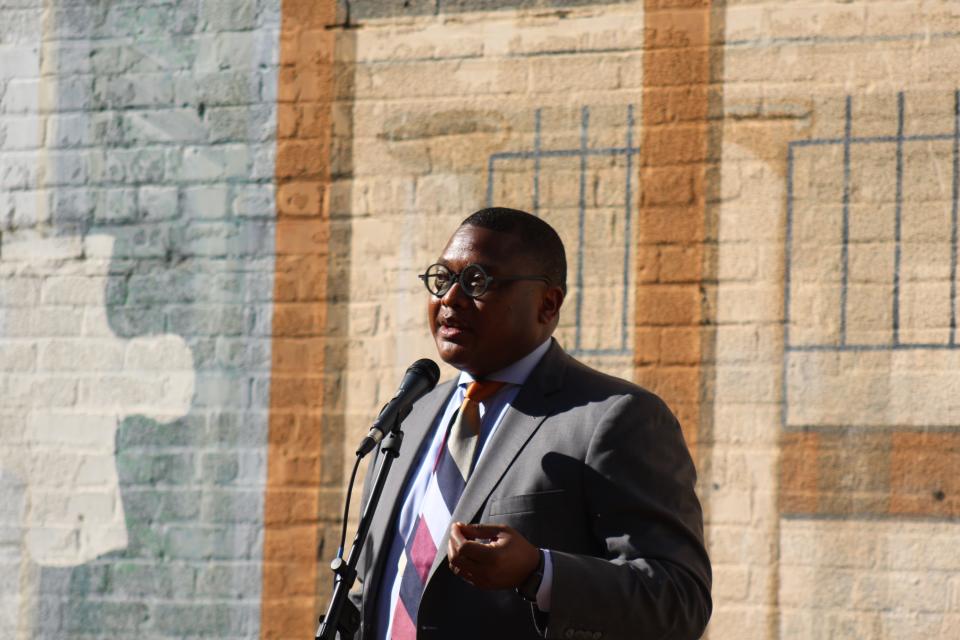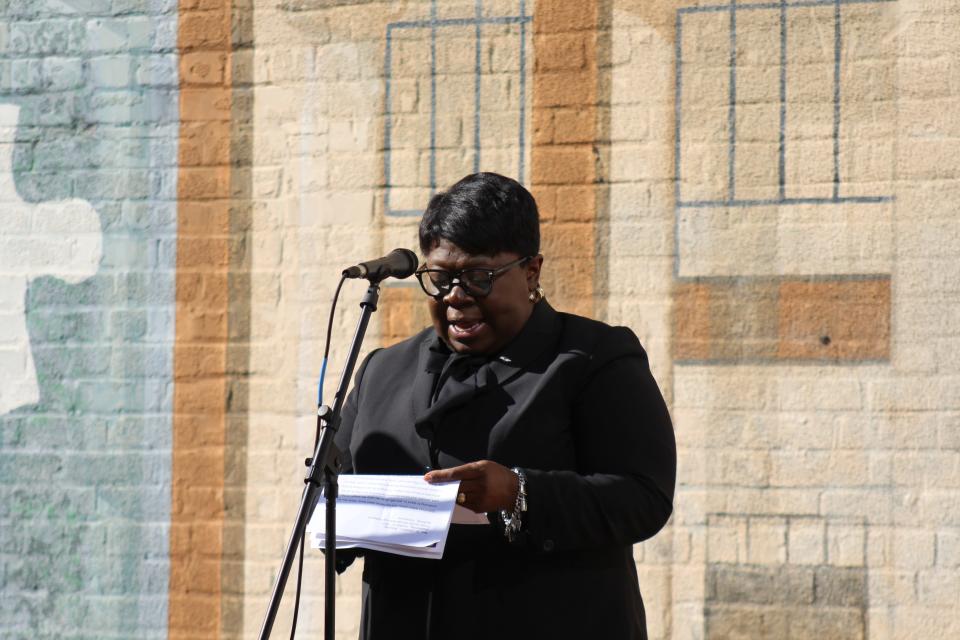'We've had enough:' Black Tennessee leaders create collective to protect rights of the marginalized | Opinion
Listen up, my fellow Tennesseans. Just because we live in a deep red state does not mean we can deny the needs, the priorities and the very existence of those who have differing perspectives. To do so is not only unfair and unwise. It is immoral.
And it cannot stand. The African American Clergy Collective of Tennessee (AACCT), made up of representatives of primarily Black congregations and their allies across the state, is moving in unison out from our pulpits into the legislature and the streets as a moral witness for justice on behalf of the marginalized from Johnson City to Memphis.
We came together in the last days of 2021. We are marshalling on many fronts in 2022.
Hear more Tennessee Voices: Get the weekly opinion newsletter for insightful and thought provoking columns.
We mean business
We have seen enough of the politics of the past rearing its ugly, racist head again. We have seen enough of a legislative redistricting process that seeks to take away representation from Black and Brown people. We have seen enough of permitless-carry gun laws that only benefit gun manufacturers while decimating poor communities, many of them urban and minority. We have seen enough of state leadership’s cruel refusal to expand Medicaid. We have seen enough of Black people still winding up dead in police custody in this state.
Over the years, we have led or participated in clergy collaboratives devoted to faith in action within our own communities. These efforts have tackled uniquely local manifestations of the universal burdens unduly borne by those of whom Christ said, “In as much as you have done it unto the least of these, you have done it unto me.” We have supported one another’s efforts.

As retrogressive policies and attitudes have been growing across Tennessee, we now recognize the need to establish a statewide agenda, which is as follows:
Expand Medicaid for the hundreds of thousands across this state, including children, who lack basic healthcare.
Advocate for an increase in the state’s Basic Education Program, the formula that delivers funds to Tennessee school systems each year.
Fight redistricting that is a blatant attempt to leave minority communities without representatives to champion their interests and stand strong on voting rights.
Restore or retain municipalities’ local control to address health, education and welfare as they see fit rather than be subjected to ideologically-driven state overreach.
Demand criminal justice reform that starts with recognizing gun violence as a public health emergency.

Hear from Tennessee's Black voices: Get the weekly newsletter for powerful and critical thinking columns.
Approaching these issues head on
This last initiative will be the first one AACCT tackles in 2022. We will be introducing state legislation on February 3 – the Recognizing Gun Violence as a Public Health Act – that calls on Tennessee to treat its epidemic of gun violence – a 16% surge in homicides in the first half of 2021 alone, not to mention record numbers of gun assaults – as the public health emergency it is.
We do not expect the legislature to reverse its trend of weakening gun laws, which culminated in reckless legislation passed in March 2021 allowing anyone to carry a loaded handgun without a background check or safety training. Instead, we will appeal to legislators to recognize the consequences of our addiction to guns and treat the gun violence epidemic as they have treated the opioid epidemic.
In 2018, the Tennessee General Assembly passed and funded “TN Together,” the state’s multi-faceted, multi-million-dollar program to combat opioid addiction and death. We can come together in the same way to mitigate the fallout from gun violence.
Our proposed legislation would provide the resources to:
Strengthen public health data reporting and collection.
Improve access to prevention, treatment, and recovery support services.
Target the availability and distribution of guns.
Support research on trauma.
Advance the practice of gun safety.
AACCT also intends to be a presence on the streets and in communities where people aren’t being treated right, and to call it like we see it. Furthermore, candidates who wish to come to our houses of worship will no longer be able to evade accountability as they have done in the past, promising our people the moon only to disappear once the votes are counted.
We are done with worthless words. We are done with a politics so ruthless it would dehumanize those who disagree. We will work tirelessly for the restoration of every person’s dignity and humanity.
And we welcome with open arms those who want to participate in the faithful fight for the dispossessed across Tennessee. Join us! For more information, please contact Dr. Shirley Bondon at blackclergytn@gmail.com.
Reverend J. Lawrence Turner is chair of the steering committee for the African American Clergy Collective of Tennessee (AACCT) and Senior Pastor of Mississippi Boulevard Christian Church in Memphis.
This article originally appeared on Memphis Commercial Appeal: African American clergy collective strives to advocate for marginalized communities

